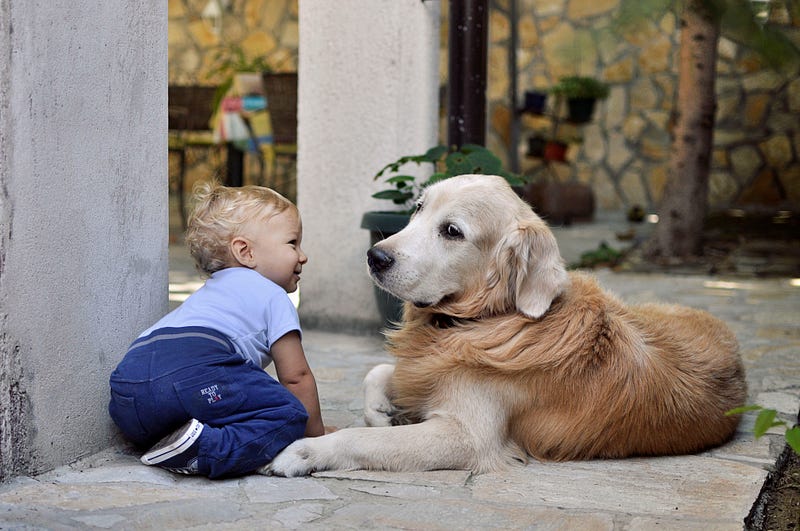
The invisible, unheralded things we do speak to who we are.
My father was a petty thief. I don’t mean that in the sense that he made a living out of it. He was a child of the Great Depression, having graduated from Cornell right into the teeth of the 1930s. He ended up marked for life by that experience. As a result, he developed a habit of taking small things from stores, long before there were security cameras. He never got caught.
Dad was complex. I am not condemning him for being a petty thief. However I think that this small compulsion of his, which my mother told me about long after his death, helped me to better understand why he did some of the things he did in other aspects of his life.
If there was an insurance claim, he thought nothing of adding a few items that he’d lost elsewhere. That kind of thing. At some very deep level, I think Dad felt that life had stolen from him first, and he had a right to steal.
Yet, when my brother pilfered money from Dad’s pants pocket from where they hung on the back of the bathroom door, Dad was livid. It was one thing to lift something small from others, but when something was taken from him, it was a major crime.
We’re messy.
And getting messier, especially when times are tough. In a world where so much of Western society believes it’s entitled- especially White males and their enablers, and those folks are terribly “aggrieved” (a word commonly used to describe the January 6th criminals, and many were BEFORE they committed sedition and murder)- it strikes me how rare honesty is any more. Honesty, courtesy, graciousness, manners.
You know, the stuff around being nice to each other and the world before some wag decided that we needed signs to remind us to be kind.
Dad might have had this character flaw, but he and my mother did their best to instill some standards. A few things stick, and I’ve built on them. I find that when I lean into what’s right as opposed to what’s convenient, or what I believe I’m owed just for showing up, life is very different. Especially my internal life. And, at times, externally.
To wit: I spend a lot of time at our local HomeGoods store here in Eugene. I know the manager, Tina, by sight, and even with a mask on she knows me. I am in there about once a week, as I slowly but surely finalize decorations and set up for my new place on the south side of town. I’ve been a TJ Maxx shopper for decades.
Yesterday I purchased a set of brightly-colored kitchen towels for Easter. The bar code didn’t work. We had to get another for a price check. That one didn’t work either. We ended up with three sets of towels to get a price for one. I paid up and headed to my car. The cashier and I were carrying on a lively conversation and I wasn’t paying a lot of attention.
As I was loading up I noticed that I had all three sets of towels in my bag. Curious, I checked my receipt. I’d only paid for one. So, I grabbed the other two, walked the cart back and paid for them. The cashier was very surprised. She said, and I know she’s right, the most folks just keep right on going.
This isn’t about lookit me. I’m trying to make a point. Stay with me here.
This happened to me years ago at a TJ Maxx in Lakewood, Colorado. I got my purchases out to the car and realized that I hadn’t paid for something in the bottom of my cart. I took it back in and paid. The young blonde manager thanked me profusely.
Some time later, I was checking out at another TJs, when the cashier accused me of some kind of dishonesty. I don’t recall what, only that she had decided that I was trying to walk off with something that wasn’t mine. The same blonde manager, who had by then been promoted to this larger store, promptly walked over and vouched for me on the spot.
She and I have seen each other many times over the years. These small gestures speak to who we are, the standards we live by, and the nature of how we wish to live in the world. The people at my local HomeGoods now know me to be honest, even over barely fourteen dollars’ worth of kitchen towels. Because it matters.

It isn’t about the money. Nor is it about the thrill of getting away with something, or sticking it to the Man. Sometimes a front line worker has to make up for shrinkage out of their own paychecks, so a prank you pull can cost a low level worker part of their pay. I have difficulty squaring that this is fair, but companies do it.
Here are some ways to frame how this works:
/Stocksy_happy-woman_561241-5797837a5f9b58461f05b4cd.jpg)
and to take that a step further, please see this:
/GettyImages-545881783web-5703cb403df78c7d9e78fa76.jpg)
The smallest of gestures, ranging from opening a door for someone with an armload of groceries and kids, helping a person out of a car, even picking up one end of a heavy weight bench at the gym to move it like I did yesterday morning all add up to the general feel-good of the day. Some folks won’t let you, and that’s their journey. Still, things like picking up trash that isn’t yours or taking carts back to a store are all part of being in community. They anchor you to a place, for those gestures speak to your understanding that you belong. And that the cumulative value of those small things, done every day over time, most assuredly add up.
Those small things say that this is my store, my parking lot, my community, my world. I have a responsibility for my tiny part in it, and for those who share the air and the earth with me. Because I am still new to Eugene, the time I spend taking care of not only my property, but the blackberry infestation that can affect people hiking on the trail behind my house, allows me to feel valuable. And I get work outside in the cool air. Those hikers don't need to know who did it. They just get to enjoy a thorn-free wander through the woods near my home. Again, those add up.
Just as the small, petty thievery adds up. To that, while my Dad probably didn’t bother to consider this, the little thefts of which he was guilty added to this kind of thing:
Inventory Shrink Cost The US Retail Industry $46.8 Billion It is a wild frontier for retailers today. Everything from Amazon to mobile phones is having an impact on their sales…www.forbes.com
Under Covid, which created a wholly different set of emergencies, desperate people stole food and diapers. Please don’t gaslight me about that- I get how awful that was, and why. Many of those folks would never have done such a thing before Covid, before housing became impossible for so many. This article isn’t about desperate people in desperate times. This is about how we show up day to day, and what that says about who we are.
The unseen, small kindnesses that you and I offer the world, the space we inhabit, the people around us, add up.
My neighbor has an aging, mostly blind dog who wanders out into the road every so often. That dog can’t see or hear shit, and I have another neighbor who drives his pickup like an asshole around the tight corners. If I see that dog out, I stop my car immediately and coax it home. The owners are always happy. And I always feel like a million when I know the dog is safely inside.
I don’t need a hero button or to be lauded on social media for not being a jerk.
None of us does, albeit I get the distinct impression these days that it’s not worth doing unless someone has a camera on you to report your good deeds. The need to be seen doing good things has little or nothing to do with simply doing them because they’re the right thing to do.
I am no Biblical scholar, but I am a fan of the Sermon on the Mount, which has something to say about praying in public “so as to be seen by men.” The way I see it, the more I need to crow about the little things I do which add value, the less valuable they are.

Quarantine has been tough on all of us, but it might also have underscored a few things that have been cast aside. How critical human contact is, of course, about which better writers than I have penned excellent articles. But also, the way enforced isolation has, at least for some, allowed us to consider our relative value to the world and each other.
The small, daily gestures of holding doors, carrying groceries, walking someone’s dog, checking in on a sick neighbor have been, at least for some, terrific reminders of what really is important. We matter when we care, and when we care to do the small, right, important things, our sense of belonging is reinforced. And we want to do more when we feel we belong.
Funny how that works.
Not everyone wants your help. Not everyone will be pleasant about it, either. Not your journey. You can’t force kindness onto folks who see it as condescension, no matter what your genuine intent may be.
Not everyone wants your help. Not everyone will be pleasant about it, either. Not your journey. You can’t force kindness onto folks who see it as condescension, no matter what your genuine intent may be. Society has not encouraged the kind of generosity of spirit and everyday kindness that each of us deserves, and issues of racism, ageism and all the other -isms make trust damned hard. So if your gestures are mistrusted or rejected, don’t take it personally. After all, if it’s genuine, then it’s not all about you anyway.
I learned a long time ago that depression was quickly alleviated, if not outright relieved, by finding ways to be useful or kind, or be of service to others. While the rest of society slavers about becoming the Next Tony Stark, and people make verbs out of assholes like Elon Musk (we’re going to “Elon Musk” this, I heard in an NPR story) the only true differences that you can I can make are the ones that absolutely, positively make the most impact: the tiny, everyday, small and often unnoticed gestures that reinforce what is fundamentally good in all of us.
To that, if I’m wise (and I’m often not very) I will know to get out and do something nice when I am in a funk. Works every time. The way I see it that’s a good sight better than committing verbal violence on social media.
But hey, that’s just me. Meanwhile I’m going to go give my neighbor’s mastiff, Ollie, a butt rub.


Comments powered by Talkyard.